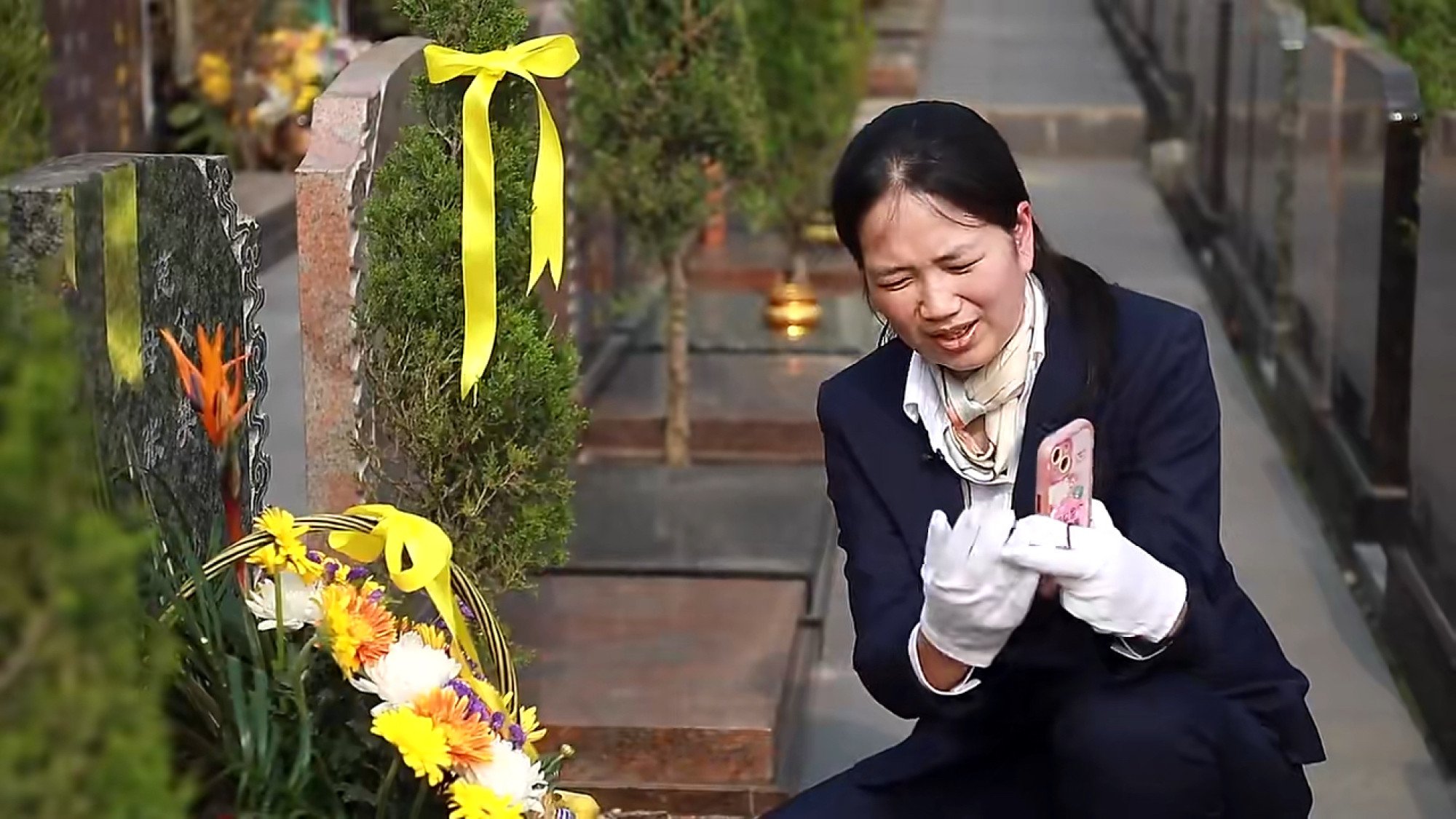
Professional China tomb-sweepers spruce up sites, perform rituals, live-stream rites for absent clients
- Busy tomb-cleaning pros say they have to bow more than 100 times a day to meet demand
- Growth of rites outsourcing business splits opinion on mainland social media
Ching Ming Festival, also known as the Tomb Sweeping Festival, has seen the growth of a unique service in China, the outsourcing of graveside rituals to professionals.
Some practitioners even live-stream the whole process for people who cannot attend in person.
In Hangzhou, the capital city of Zhejiang province in southeastern China, professional funeral ritualist Zou Mengjun says she has seen demand for her services grow.
At present, she is responsible for cleaning 20 to 30 graves daily for absent clients. The workload means she has to bow more than 100 times a day.
Her services include cleaning tombstones and then adorning them with fruit, fresh flowers and memorial ribbons.

Based on client requests, Zou may also recite eulogies, play the deceased’s favourite music at their grave and even live-stream the entire process.
In one touching scene featured in a trending online video, Zou recites a heartfelt message sent via WeChat on behalf of her client.
“Dear Grandma, I am your youngest granddaughter-in-law. Although I’ve been unable to visit you for two years, you’re always in my thoughts. The peach blossoms bloom, your favourite scene,” the message said.
“With the arrival of our third child, I’m unable to travel, so I’ve asked the funeral ritualist to express our family’s love,” it added.
The price of packages ranges from 98 to 398 yuan (US$14 to US$55).
A 298-yuan package includes a complete ritual service with three respectful bows, complete photography and videography and even a pot of yellow rice wine for the deceased.
Zou said she has been working in this field for almost six years and has seen the business flourish, with order numbers for the whole festival period leaping from around 20 to 30 in 2020 to 200-300 this year.
“Every Ching Ming and Winter Solstice are peak times for our grave-tidying service. For each grave, we must bow at least three times,” said Zou.
“So, if you think about it, if one person is tidying 20 to 30 graves, we are definitely bowing over 100 times per day,” she told Zhejiang Daily Press Group.
“When we are performing these services, sometimes family members who are at the site become curious about our work. They also think our service is very good, saying that when they get older and can’t move as easily, they will hire us to perform this service for them,” the professional ritualist said.
She added that some clients send them thank you letters, and even appreciation banners to them.

Online opinions on the service were mixed, with some viewing it as thoughtful while others arguing that it dilutes tradition.
“This is the first time I’ve heard of this profession. It truly solves a significant problem for those unable to return home!” said one online observer.
While another countered: “If you are unable to attend, you can perform the rituals before or after the festival. Hiring someone else has already lost the original meaning of worship. If the deceased could sense it, do you think they would accept it?”
“Let’s first acknowledge the funeral worker’s dedication! However, outsourcing someone to perform the rites loses the meaning of the ritual – tidying the ancestors’ graves must be done personally,” said a third.

